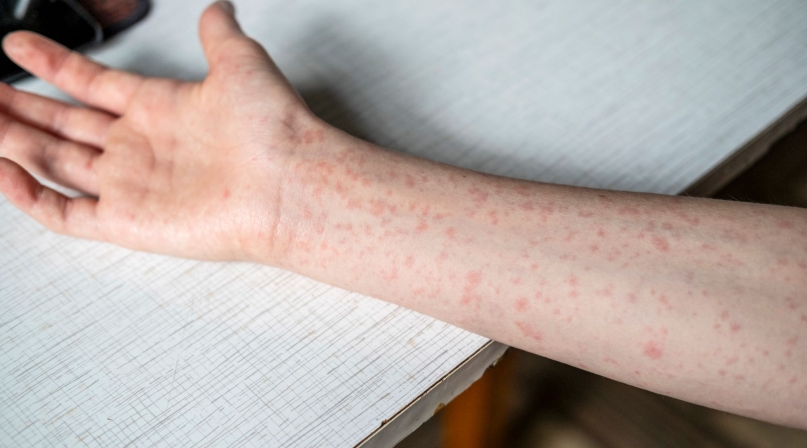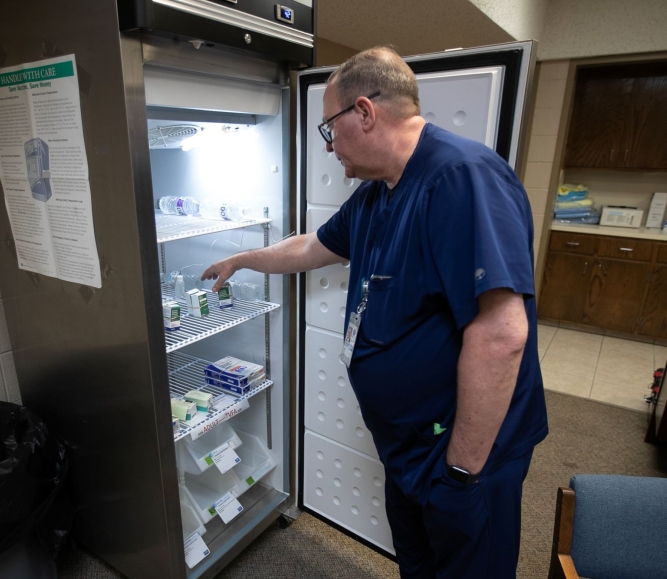Measles on the rise: What county officials need to know
Author
Julia Haskins
Upcoming Events
Related News

Key Takeaways
The resurgence of measles across the U.S. has raised alarm among county leaders and their communities. As of May 15, 2025, more than 1,000 measles cases were reported in 31 states, with three deaths.
Why is measles so dangerous?
Measles is an extremely contagious viral infection that is especially dangerous to children, infants too young to be vaccinated, and other vulnerable populations like pregnant women and people with compromised immune systems. The disease can lead to serious complications like pneumonia and brain swelling, which can cause lifelong disability or death.
What can be done to prevent measles?
The good news is that there is a proven and powerful line of defense: the Measles, Mumps, and Rubella (MMR) vaccine. Two doses of the vaccine are 97% effective in preventing measles. The Centers for Disease Control and Prevention (CDC) recommends that the first dose be administered between 12 and 15 months of age and the second between ages four through six. It is also recommended for some adults to get a booster vaccine.
Why are we seeing more measles cases?
Measles was eliminated in the U.S. in 2000, largely due to uptake of the MMR vaccine and other public health interventions. However, vaccination rates have been declining in the U.S., which has contributed to the rise in measles cases. An increase in false and misleading health information is another barrier to vaccination because it feeds into concerns about the safety and efficacy of vaccines, which can be a deterrent to uptake.
Travel is another common means of viral transmission. While traveling, people are often in close quarters with one another on planes, trains, and buses. Measles can stay in the air up to two hours after an infected person has left a space, which makes it easy to spread to people nearby. Through international travel, you may also be crossing paths with people who are less likely to be vaccinated, especially if they are from countries with low rates of vaccination.
How can county leaders protect communities against measles?
Vaccination is the most effective defense against measles, and county leaders can use their voices to encourage uptake of the MMR vaccine. County leaders can partner with trusted community messengers to promote vaccination, being sensitive to people’s fears and concerns. Empathy goes a long way toward helping people feel more comfortable about a decision that will affect them and their families. The Public Health Communications Collaborative (PHCC) offers measles messaging resources that can be adapted to local contexts. PHCC also has vaccine-focused messaging resources developed with the public research opinion firm PerryUndem.
In addition to vaccination, the basic hygiene and infection mitigation practices that we know well thanks to the COVID-19 pandemic apply to measles prevention. Washing your hands frequently, sanitizing high-touch surfaces, and staying home when ill are all easy but effective ways to prevent measles from spreading. County leaders can work with health departments and partners on public information campaigns with simple ways to reduce the risk of measles infection.
The more that county leaders can equip people with research-backed information that speaks to their needs, the more successful they will be in reducing measles rates in their communities.
Related News

HHS Secretary Kennedy touts fixes for obesity, chronic illness, mental health issues
Counties can help improve health outcomes by prioritizing prevention over treatment, Robert F. Kennedy Jr., secretary of the U.S. Department of Health and Human Services told NACo Legislative Conference attendees.

Drug tracking software helps counties identify trends, save lives
Florida counties are using an artificial intelligence tool called Drug TRAC to track and report drug trends, with the aim of providing quicker outreach and saving lives.

White House Executive Order establishes national substance use disorder response
On January 29, the White House issued an Executive Order (EO) establishing the Great American Recovery Initiative, a new federal effort aimed at coordinating a national response to substance use disorder (SUD).
County News
Measles outbreak underscores rural healthcare challenges
Texas and New Mexico counties are working to boost vaccination rates in response to the recent measles outbreak, which has included deaths in both states.
